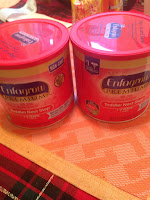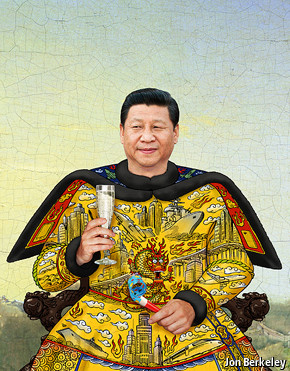 |
Foreign baby formula
is worth its weight
in gold in China! |
Daigou's are overseas Chinese who either work, travel, or study in
a foreign country and sell items purchased abroad for resale in China. They
take advantage of price differences between the products sold in China and the
same products sold in the rest of the world. Recently, daigou's have
received a great deal of attention in the press. News outlets continually
chronical high-profile shortages of baby formula in Australia, Hong Kong, and
elsewhere caused by Chinese middlemen buying the product in bulk for resale in
China. Several factors contribute for the demand for foreign products in
China. First, Chinese consumers do not trust domestic brands because of a
series of deadly safety scares. Second, Chinese consumers often prefer
foreign brands because of their status and higher quality.
 |
Designer bags are very
popular |
Chinese consumers who purchase
foreign products in China must pay high and clandestine taxes. These
taxes dramatically increase the prices of popular consumer products in
China. In many cases, the government levies these high taxes on foreign
brands made in China. Milk powder, luxury bags, vitamin supplements, and electronics
are popular items sold by daigou’s. In
November of 2017, the Chinese government cut the average import tax from 17.3%
to 7.7%. However, the incredibly opaque method of how, when, and at what
rate the government levies import taxes makes this claim suspect.
Chinese consumers circumvent
the high taxes by buying products through daigou's. They buy products
while abroad and ship the products back to China for sale at a markup.
Despite the costs and time involved in this practice, it is still cheaper for
Chinese consumers to buy products through daigou's than from retail outlets in
China. The fact that many of the products purchased abroad and sold by
daigou's in China have "made in China" stamped on the back of them
makes this practice incredibly surreal. For example, something is:
1. Made at a factory in
China
2. Shipped to a
port
3. Loaded on a ship and shipped
across the Pacific Ocean
4. Unloaded at a port in
America
5. Loaded onto a truck
and shipped across the country
6. Unloaded and put on
display in a store
7. Purchased by a daigou
(after they receive an order from a consumer back in China)
8. Purchased, packaged, and
shipped by the daigou
9. Sent to a sorting
facility
10. Shipped to a
port
11. Loaded onto a
ship
12. Sent across the
Pacific Ocean
13. Unloaded at a port in
China
14. Shipped by truck to a
sorting facility
15. Delivered by a delivery
service to the Chinese consumer in China
And the item still costs
less than if the Chinese consumer bought it off the shelf at their local store!
 |
Items like this a
listed on
WeChat accounts |
Daigou's use the Chinese social
media platform WeChat to list products available for purchase in stores. Daigou’s
take pictures of the items and upload them as a “WeChat Moment,” which is
similar to a Facebook “Status Update.” Go
to a Costco or Wal-Mart in any major city, and you will likely find Chinese
people taking pictures of products with their phone. They work as daigou’s. People in the daigou's social circle can view
the products and place orders by forwarding a message to the diagou using the
app. Often, purchasers pay for the items through Alipay or some other
form of virtual wallet (think Apple Pay but Alibaba branded).
Some daigou's have the ability
to carry the items they've sold through customs. You'll see hundreds of
daigou's at the Shenzhen and Hong Kong border. Follow the link to see a
YouTube video about the border. Whenever I arrive at Beijing Capital
Airport, I rarely see anyone go through the line to declare items at
customs. Even individual travelers with five or six suitcases go through
the "nothing to declare" line without a problem. It's painfully
obvious that these people are daigou's returning to China with items purchased
abroad.
 |
This watch likely
comes with at least
a 50% markup in
China |
So why don't customs officials
stop them and make them pay taxes on the suitcases full of items they've
purchased for resale? There's a lot of speculation about why the Chinese
government turns a blind eye to daigou's. I think it's because it allows overseas Chinese to generate wealth without having them interact with us "natives." Feel free to speculate in the
comments below....
https://www.youtube.com/watch?v=YQm5FZMforg
http://www.scmp.com/news/china/policies-politics/article/2121377/china-cuts-import-tariffs-range-consumer-goods
http://www.nzherald.co.nz/business/news/article.cfm?c_id=3&objectid=11979837




